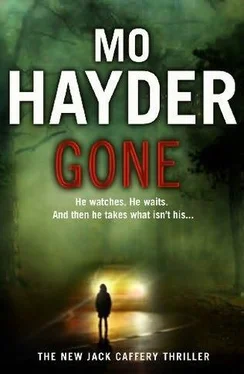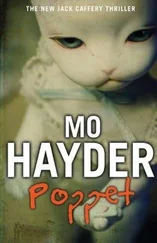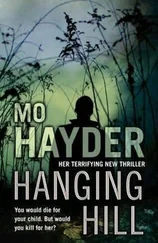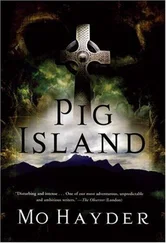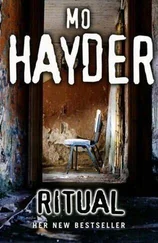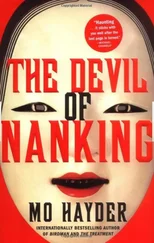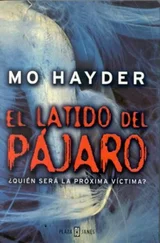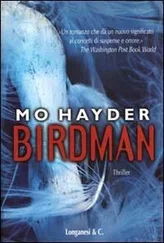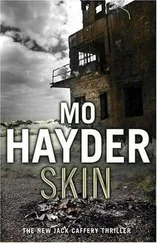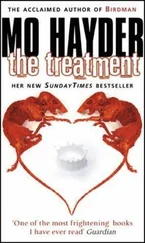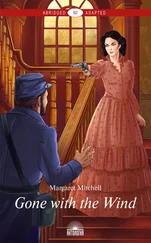‘Nothing. No news. But I do need to speak to you. DI Caffery’s got some questions he wants me to ask.’
Janice put her hands on the table, two lumps of dead meat, and pushed the chair back. Slowly, woodenly, she got to her feet. She must look like a marionette, she thought, walking with her arms slightly outstretched, her feet heavy. She shuffled through into the big formal living room – the fire in the inglenook made up but unlit, the big comfy chairs, all sitting in silence, as if they were waiting, the smell of woodsmoke in the air. She sat lumpenly on her sister’s sofa. Somewhere at the other end of the cottage she could hear a television playing. Maybe her sister and her husband were sitting in there, the volume turned up so they could say ‘Emily’ without Janice hearing. Because then she might scream, might fill the cottage with her screaming, until the windows rattled and broke.
Nick switched on a small table light and sat opposite her. ‘Janice,’ she began.
‘You don’t need to, Nick. I know what you’re going to say.’
‘What?’
‘It isn’t Emily, is it? It’s us . It’s us he’s after, isn’t it? Me and Cory. Not Emily. I’ve worked it out.’ She jabbed a finger at her forehead. ‘My brain is sweating, Nick, trying to put everything together. I’ve got all the information the well-meaning but ever so slightly inefficient police will give me. I’ve put it together, added two to two, and come up with ten. It’s us . Cory and me. Jonathan Bradley and his wife. The Blunts, the Grahams. The adults. It’s what the police think too. Isn’t it?’
Nick folded one hand over the other. Her shoulders were sloped, her head drooped. ‘You’re smart, Janice. Really smart.’
Janice sat quite still, staring hard at the top of Nick’s head. At the far end of the cottage someone on the television cheered. A car went past on the lane, its headlights briefly illuminating the lonely furniture. Janice thought of DI Caffery sitting next to her on the bench in the garden earlier. She thought of his notebook with the scribblings in blue biro. It had made her feel sick, that book. A flimsy square of card and paper – the only tool to bring Emily back.
‘Nick,’ she said after a long time. ‘I like you. I like you very much. But I don’t trust your force. Not as far as I could throw it.’
Nick raised her face. She was pale and her eyes were hollow with tiredness. ‘Janice, I don’t know what I’m supposed to say, I don’t know what I’m supposed to do. I’ve never been in this position before. The force? It’s an institution just like any other. It’s got “public servant” writ large in its manifesto, but I’ve never confused it with anything other than a business. Except I can’t say that, can I? I have to look you in the face and tell you the investigation is being run perfectly. It’s the most difficult thing I have to do. Especially when you get to like a family. When that happens it’s like lying to friends.’
‘Then, listen.’ Speaking felt like the most enormous effort to Janice. Exhausting. But she knew where she had to go next. ‘There’s a way to sort this out, but I don’t believe your unit will do it. So I’m going to do it instead. And I’ll need your help.’
The corner of Nick’s mouth twitched. ‘Help,’ she said noncommittally. ‘I see.’
‘I need you to find some contact details for me. I want you to do some phoning. Will you? Will you help?’
‘My son is not a nonce. He’s a bad boy, a very bad boy, but he’s not a fucking nonce.’
It was nearly midnight. The lights were still on in the MCIU building. Still the clatter of keyboards in distant offices, the noise of phones ringing. Turner and Caffery sat in the meeting room at the end of one of the corridors on the second floor, the blinds drawn, the fluorescent tubes on. Caffery was fiddling with a paperclip. Three cups of coffee sat on the table, and Peter Moon was seated at the other side of the desk on a swivel chair, dressed in a diamond-design jumper and saggy blue sweatpants. He’d agreed to talk on condition they released him from the cell overnight. He didn’t want to talk under caution, didn’t want a lawyer present, but he’d been thinking about it all night and now he wanted to set the record straight. Caffery let him do it. He didn’t plan to let the guy off. He planned to bang him up again the moment he’d coughed.
‘Not a nonce.’ Caffery looked at him dully. ‘Then why have you been covering for him?’
‘The cars. His problem is with cars – he’s like a little kid with them. He’s nicked scores of them. It’s like he can’t help himself.’
‘We found most of them in his lock-up.’
‘That’s why he got a job here.’ Peter looked thin and defeated. Embarrassed. Here was a man whose only legacy to the world was two sons, one of whom would die at home in bed before he was thirty, and the other in prison. An A4 blow-up of Ted was pinned to the whiteboard on the wall. It had been taken from the police-staff pass. Ted stared down into the room with his blank dead eyes, his shoulders hunched slightly forward, his forehead lowered. Peter Moon, Caffery noticed, avoided looking at it. ‘He’s stolen so many he thought you were on to him. Thought if he worked here he could – I dunno – get into your computers. Change the records or whatever.’ He put his hands in the air. ‘God knows what ideas he had – that he was some computer genius or something.’
‘He went into our system – but to find out what we knew about his stolen cars?’ Caffery looked at Turner. ‘Does that sound right to you? That he was looking for stolen cars?’
Turner shook his head. ‘No, Boss. Doesn’t sound right to me. To me it sounds more like he was doing it to find the places we’d housed that family. The one he’s targeted. And the traffic-surveillance cameras.’
‘Yes – those traffic cameras. Amazing how he avoided them.’
‘Amazing,’ Turner agreed.
‘See, Mr Moon, your son’s kidnapped four children now. Two he hasn’t given back. He’s got good reason to want to stay ahead of us.’
‘ No , no , no . I swear on the heads of all the saints, he’s not a nonce. My son is not a nonce.’
‘He killed a thirteen-year-old girl.’
‘Not for nonce reasons.’
On the desk there was a single sheet covered with Caffery’s handwriting – the scribbled notes he’d made of a phone conversation earlier this evening. After the post-mortem on Sharon Macy’s remains, Caffery’d had a brief informal call from the pathologist. The man wasn’t going to say anything official, that would be in the report later, but he could give him a few things on the QT. Sharon Macy’s body was so decomposed that no one could be 100 per cent sure of anything, but if he’d been a betting man he’d say she had been killed either by the blunt-force trauma to the back of the skull or by blood loss from the enormous gash in her throat. There was evidence she’d struggled: one of her fingers was broken on the right hand, but when it came to evidence of sexual assault the pathologist had drawn a blank. The clothing wasn’t disturbed and her body hadn’t been displayed in a sexual way.
‘I know,’ Caffery said now. ‘I know he’s not a nonce.’
Peter Moon blinked. ‘You what?’
‘I said I know he’s not a paedo. The fact he’s taken girls? All under the age of thirteen? It’s a red herring. Coincidence. They could just as well been boys. Or teenagers. Or babies.’
Caffery shook a set of copied photographs out of an envelope, stood and began very carefully taping them to the whiteboard, one by one, lined up under Ted Moon’s picture. Caffery had got one of the DCs to print out little tags with all the relevant information he could think of: name, age, appearance, socioeconomic class, job, background, etc. He stuck the tags beneath the faces. ‘You’re here because your son has got a list of victims. A whole catalogue of people he’s got something against. But it’s not the kids he hates, it’s the parents. Lorna and Damien Graham. Neil and Simone Blunt. Rose and Jonathan Bradley. Janice and Cory Costello.’
Читать дальше
